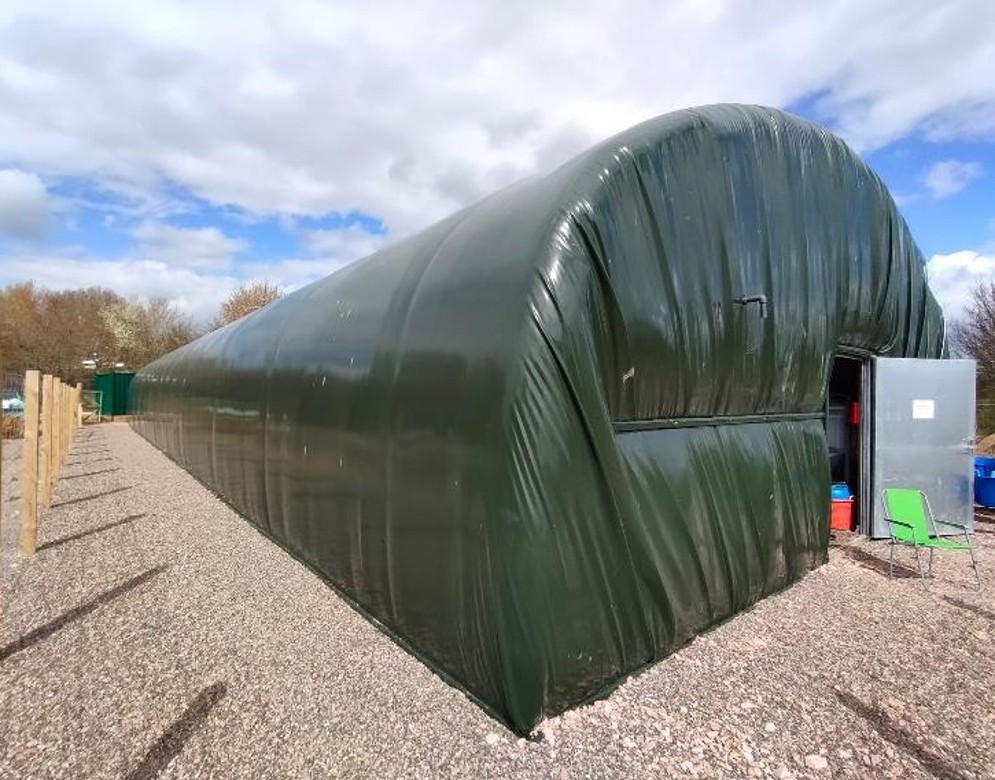Farming king prawns indoors in tanks on UK farmland could create a thriving, sustainable seafood industry, researchers say.
King prawns are one of the "big five" seafoods eaten in the UK - but the vast majority of this tropical species is imported, and often comes from environmentally damaging sources.
Researchers from the UK Sustainable King Prawn Project (UKSKPP) say there is a "better way": cost-effective and environmentally sound king prawn aquaculture (seafood farming) - creating new employment opportunities and making production of the freshest and tastiest seafood truly sustainable.
Growing a tonne of king prawns this way takes 50 times less land than raising the same quantity of pork or beef, boosting the UK economy and food security. This impressive efficiency of land-use for high-quality food production also opens opportunities for subsidies to support nature-positive solutions on other agricultural land (e.g. planting more woodland for CO2 removal, improving biodiversity and reducing flood risk).
Professor Ian Bateman OBE said: "Nature restoration is vital, but if we simply take land out of farming this reduces food production, shifting agricultural impacts on the environment elsewhere. King prawn production yields huge quantities of highly nutritious food on small areas providing a great example of how we can spare land for environmental improvements without reducing food output."

Researchers, business leaders and policymakers will attend a showcase for the project at the University of Exeter today (Friday 14 November).
"If we are going to feed our growing population over the coming decades - while simultaneously reducing our carbon emissions and reversing biodiversity loss - sustainable aquaculture has to be a major part of food production," said Professor Rod Wilson, who leads the UK Sustainable King Prawn Project.
"In the UK, we already love eating king prawns as a healthy, high quality and tasty seafood.
"Our project aims to support a new farming sector for home-grown king prawns, using indoor closed-system methods, harnessing renewable energy and integrating circular-economy thinking so nothing is wasted."
The current retail value of king prawns in the UK is over £300 million per year, and even replacing a small proportion of this would boost the UK economy and reduce environmental damage.
Growing king prawns in this way offers so many benefits including to the UK economy, job creation in rural locations, and environmental (both in the UK and overseas) - but critically, prawns could just be the start.
Dr Robert Ellis: said "Demand for protein in the UK will increase as our population grows. Ensuring we get this extra protein from a sustainable source is imperative, to minimise negative environmental impacts. High-tech aquaculture operated in novel locations such as terrestrial farms or urban settings could offer the perfect solution, and place the UK at the forefront of a sustainable seafood revolution."
Friday's event will be attended by Dr Andrew Whiston, CTO of Rastech and co-founder of Eden Valley Prawns - the UK's only commercial land-based king prawn farm - who said: "We've proved that king prawns can be raised and sold right here in the UK using only seawater, feed, and renewable energy. No antibiotics, no pesticides, no mangrove destruction and minimal food miles. The UK can lead the way in onshoring sustainable aquaculture; improving our food security with fresh, healthy seafood we can all enjoy with a clear conscience."
To establish sustainable aquaculture at the forefront of the UK seafood sector, key barriers to the expansion of land-based production will need to be overcome.
These barriers include public perception of aquaculture, a suitably skilled workforce, technological and legislative innovation, and UK hatcheries for key production species.






